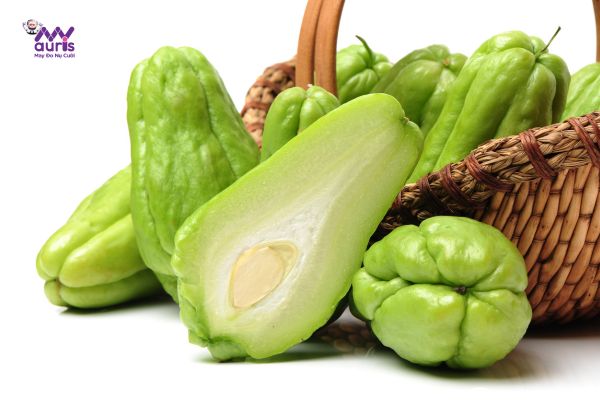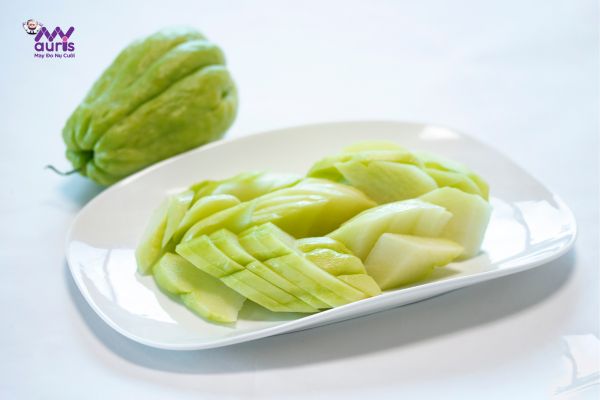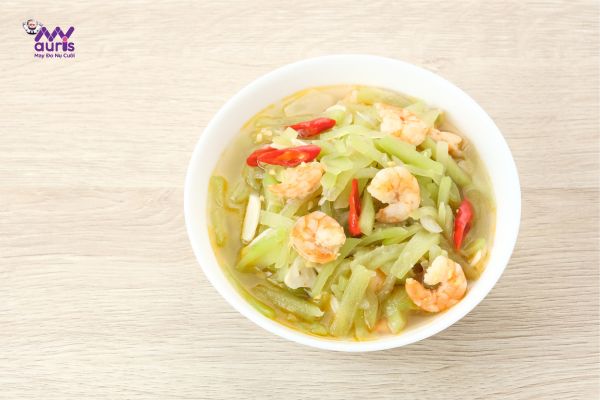Nutrition for pregnant women, especially in the first 3 months, is extremely important. Therefore, many mothers are under psychological pressure and afraid of foods that should and should not be supplemented. In particular, chayote is a tuber used to prepare dishes, supplementing antioxidants, vitamins and minerals necessary for the body that mothers still worry about. So can pregnant women eat chayote in the first 3 months? Let’s answer My Auris in detail through the following article.
Can pregnant women eat chayote in the first 3 months?
During the first 3 months of pregnancy is considered a sensitive time because the newly formed fetus is not yet attached. probably the mother’s uterus. At the same time, the mother’s hormones change, leading to fatigue and morning sickness, affecting her health. Therefore, mothers need to build a suitable, healthy nutritional regimen to maintain health and good for the development of the fetus.
However, during this time risks can easily occur, so mothers are extremely worried about the foods they should eat. So can pregnant women eat chayote in the first 3 months?
According to nutrition experts, pregnant women in the first 3 months can completely eat both the chayote fruit and the top of the chayote. Mothers can even eat chayote throughout pregnancy.
Chayote is a fruit available all year round, the peak season is from April to August every year. Chayote is in the same family as watermelon and gourd. The shell and intestines are both bright green. When eaten, chayote has a cool, slightly sour taste and is very easy to eat.
Although pregnant mothers can eat chayote in their daily diet, they need to eat chayote in the right season and choose a place to buy with clear origin. Because chayote often contains pesticides, chemical fertilizers, etc., which affect the mother and fetus.

Benefits of eating chayote during pregnancy thai
Chayote is rich in nutrients, especially essential vitamins and minerals that bring many benefits to the health of both mother and fetus.
Nutrition composition of chayote
In 100g chayote provides the following nutrients:
- Energy: 18Kcal
- Protein: 800mg
- Carbs: 3.7g
- Calcium: 17mg
- Iron: 400mcg
- Water: 93.8g
- Fiber: 1000mg
- Phosphorus: 14mg
- Vitamin C: 4mg
- Beta carotene: 15mcg
- Vitamin PP: 400mg style=”font-weight: 400;” aria-level=”1″>Vitamin A: 3µg
- Vitamin B9: 24µg
- Potassium: 240mg
- Sodium:2mg
- Calcium: 20mg
- Iron: 0.4mg
- Magnesium: 10mg
- Zinc: 0.2mg
- Manganese: 0.1mg

Health benefits of eating chayote
Thanks to its rich nutrients, chayote root brings many health benefits to mother and baby, specifically as follows: Chayote contains carbohydrates and proteins that help provide energy for the body to function. In addition, magnesium and manganese in chayote also help convert protein and fat into energy.
To provide good and safe nutrients for pregnant mothers when eating chayote, you need to pay attention to a few things: Above is information aboutcan pregnant women eat chayote in the first 3 months no, hopefully mothers will have more useful experience and knowledge. To build a suitable nutritional regimen, mothers should seek nutritional advice from experts and nutritionists. Anh Thy 
Notes when supplementing chayote for mothers pregnant






